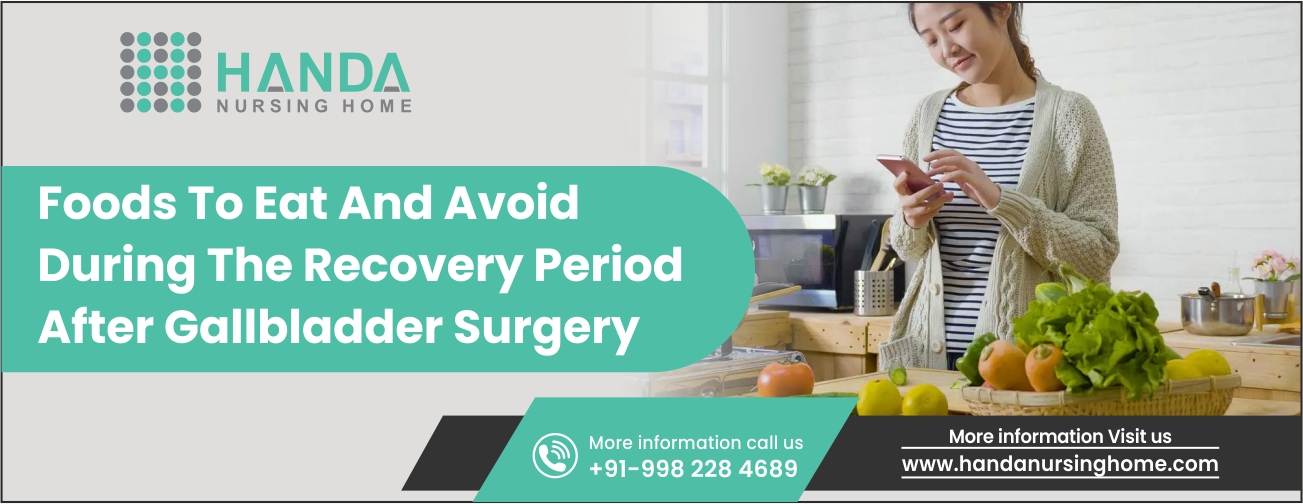People who have their gallbladder removed will need to modify their diet. Avoiding fatty, oily, or spicy dishes and eating less saturated meat, low-fat dairy, and leafy green vegetables may be among the changes.
According to research, there is no special diet that those without a gallbladder should follow. On the other hand, avoiding certain foods and preferring others can help someone recuperate faster and avoid adverse effects.
This article explains how removing the gallbladder affects digestion and lists the recommended foods after this procedure.
How Gallbladder Removal Impacts Digestion
The gallbladder is a pear-shaped organ that can be up to 10 centimeters long and is located beneath the liver. It acts as a storage for bile acids produced by the liver—the bile acids aid in the digestion and absorption of lipids.
A person’s capacity to digest fats may be impacted after gallbladder removal. Following meals, their stomach might empty more slowly. Bile is also going to go directly into the small intestine, causing food to move quicker through the digestive tract and perhaps harming the microbiota.
Due to the impact of gallbladder removal on digestion, a person’s diet will need to be changed after surgery. These modifications may be temporary for some people. Still, they need to be permanent for others, particularly those whose diet was previously rich in carbohydrates or fat and poor in fiber.
Post-Surgery Diet
When a patient awakens from anesthesia following surgery, they can swallow little amounts of liquid. According to the American College of Surgeons, if a person does not feel nauseous, they can start eating solid foods.
Constipation after surgery can be caused by anesthesia, decreased exercise, and pain medication. This symptom can be alleviated by drinking 8-10 glasses of water every day. A doctor may also prescribe a stool softener to reduce discomfort and straining.
When a person starts eating solids again, it’s a good idea to eat smaller meals more frequently and to keep track of how particular foods affect their symptoms. Experts also advise taking fat-soluble vitamin supplements, as they may be more difficult for the body to absorb following surgery.
Foods To Avoid
People who have had gallbladder removal surgery should avoid specific foods, such as
- Fatty, oily, or fried.
- Highly spiced food
- Refined sugar
- Caffeine- commonly found in tea, coffee, chocolate, and energy beverages.
- Alcoholic drinks and spirits such as beer, wine, etc
- Carbonated drinks
According to a research study, those who did not take a low-fat diet post gallbladder resection were considerably more likely to suffer diarrhea one week later.
Foods that have been processed
Processed foods can include a lot of fat or oil, which might make them difficult to digest for people who don’t have a gallbladder. Processed foods with a high-fat content include:
- Cakes, cookies, pastries, and other such desserts.
- Pizza, burgers, fries, etc, and other fast food.
- Sausages and other processed meats
Meats that are high in fat
Nonprocessed meats may also contain a considerable quantity of fat. Lamb and mutton are two examples, as are pork products such as bacon and ribs.
Milk and dairy products
Whole dairy products include fat as well. Following gallbladder ectomy, a person should avoid the following:
- butter
- cream
- whole milk
- full-fat yogurt
- full-fat cheese
- ice cream
- creamy sauces and dressings
Foods To Eat
Following gallbladder removal, eating more of some foods can be beneficial. People can concentrate on consuming the foods listed below.
Lean protein
People who eat meat can choose reduced-fat cuts to avoid eating too much fat. Low-fat protein sources include chicken or turkey breast, fish and seafood, legumes, nuts, and seeds, but only in modest amounts because they are high in fat.
Foods high in fiber
Foods high in fiber can help prevent constipation. However, people without a gallbladder should slowly reincorporate high-fiber foods into their diet post-surgery. Whole grains are high-fiber foods to try.
- wholesome fruits and veggies
- nuts and seeds
- legumes and beans
- cereals with bran and muesli
Dairy with low fat
Calcium is abundant in dairy products. If a person is unable to consume full-fat dairy products following gallbladder removal, they can replace reduced-fat dairy products such as skimmed milk or low-fat yogurt. Calcium can also be obtained from various foods, such as:
- green leafy vegetables
- pulses and legumes
- calcium-fortified milk substitutes
- tinned sardines and salmon
Takeaway
There is no specific diet that will work most effectively for everyone who has their gallbladder removed. Doctors, on the other hand, often advise patients to avoid fatty diets and foods that can upset the intestines. Some people may be able to return to their former diet by returning to foods one at a time and tracking the results. Some dietary modifications, however, may be permanent for others. If a person experiences new or persistent symptoms following gallbladder removal, they should consult a doctor.
Read More
- Why Is My Stomach Bigger After Gallbladder Surgery?
- Gallbladder Disease And Its Symptoms: Understanding When Surgery Is Necessary
- How Much Does Laparoscopic Surgery Cost In Delhi?
- Can Gallbladder Removal Surgery Cause Digestive Problems?
- Gallbladder Stones – Causes, Treatment & Surgery
- How Much Does It Cost For Laparoscopic Gall Bladder Removal?
- Laparoscopic Gallbladder Surgery in Delhi

